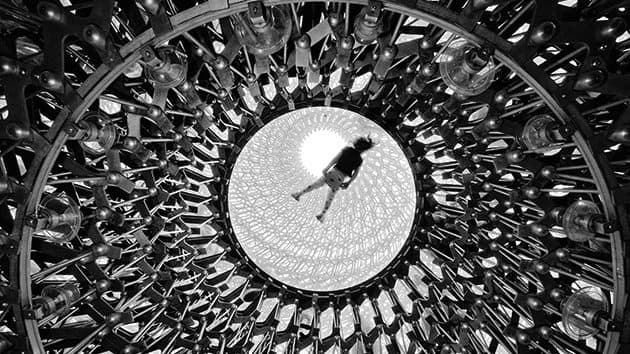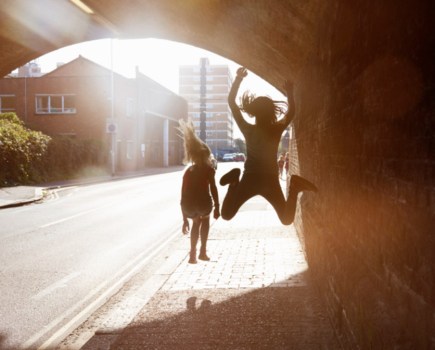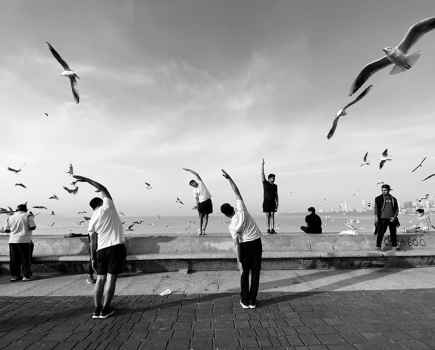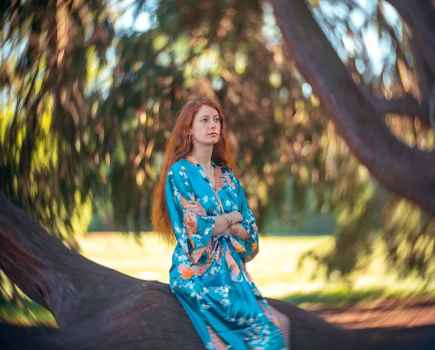Back in August, Amateur Photographer teamed up with the Institute of Engineering and Technology (IET) for a fascinating engineering photography competition. The brief was to challenge the stereotypes of engineering as being a male-only world dominated by oily overalls, hard hats and hi-vis jackets.
The fact is that engineering and technology enhance our lives in so many cool ways. As photographers, even the cameras we use every day represent a marriage of cutting-edge engineering and technology, which is why we were attracted to working with the IET in the first place.
Well, the results are in and you didn’t disappoint – as if we ever thought for a moment that you would. Here is our pick of the winners and our favourite highly commended images from the engineering photography competition.
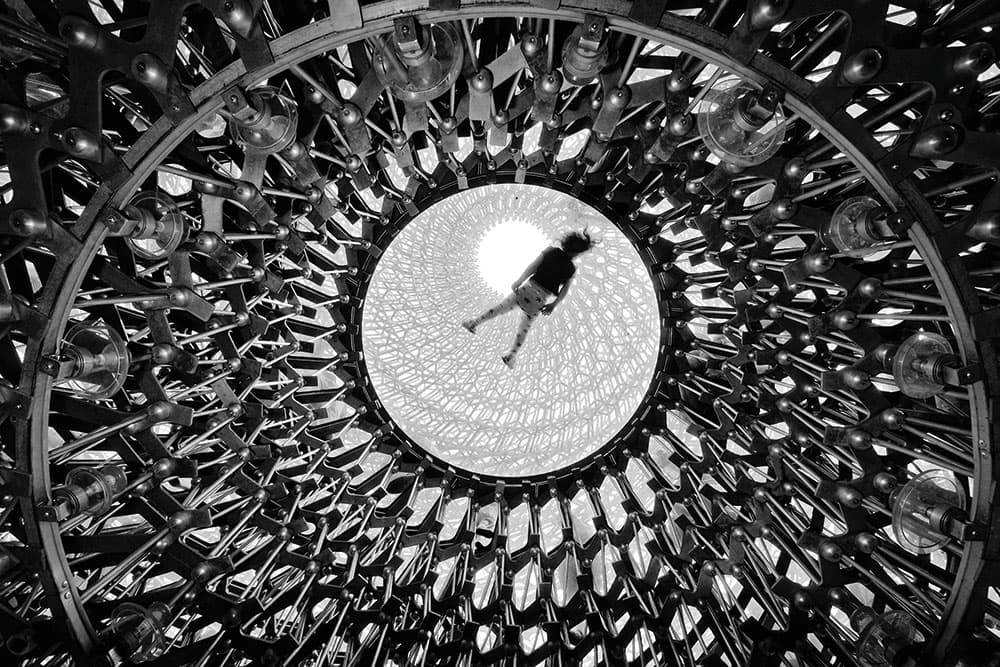
Fujifilm X-E1, Zeiss Touit 12mm, 1/250sec at f/5.6, ISO 200. Credit: Naf Selmani
Structure and Transport winner, and overall winner – Naf Selmani, London, UK
Photographed from below, this is the Hive at Kew Gardens – a spectacular new bee-inspired sculpture. One of the young visitors plays on the top glass floor of this multi-sensory experience that integrates art, science and landscape architecture.
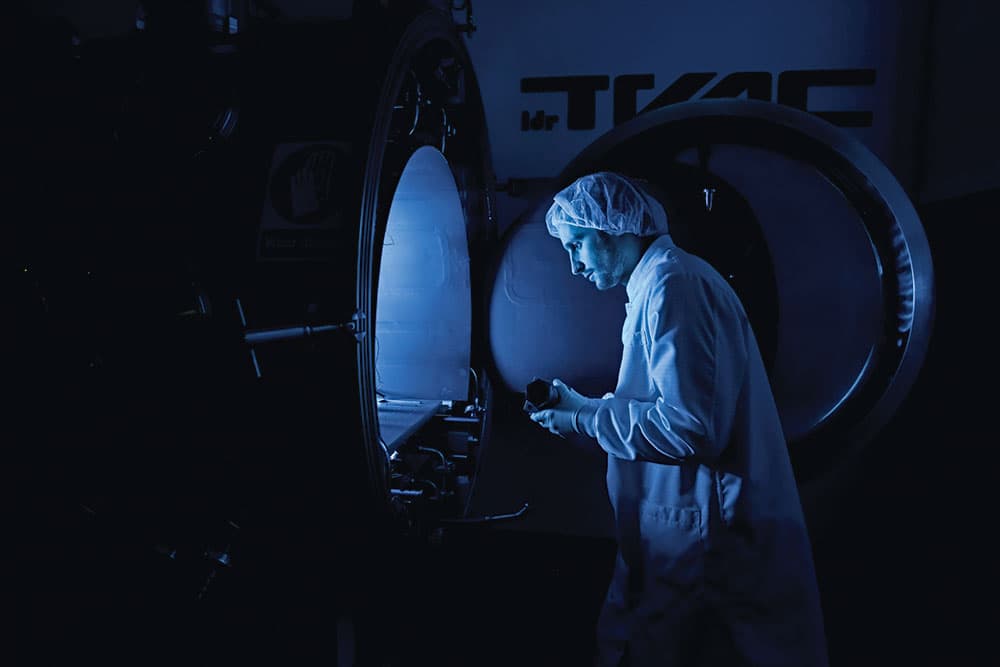
Nikon D800, Nikkor AF 20-35mm f/2.8, 1/50sec at f/5.6, ISO 800. Credit: Santiago Villamediana Sanchez
Design and Production winner – Santiago Villamediana Sanchez, Madrid, Spain
The image depicts a researcher working in a thermal vacuum chamber that simulates the environment of space. It’s used for the design and production of micro-satellites and other space equipment. ‘I was especially attracted by the degree of concentration of the researchers as they work with this delicate space equipment,’ says Santiago. ‘I tried to recreate the chiaroscuro atmosphere of the paintings of Caravaggio with the help of a speedlight and blue gel.’
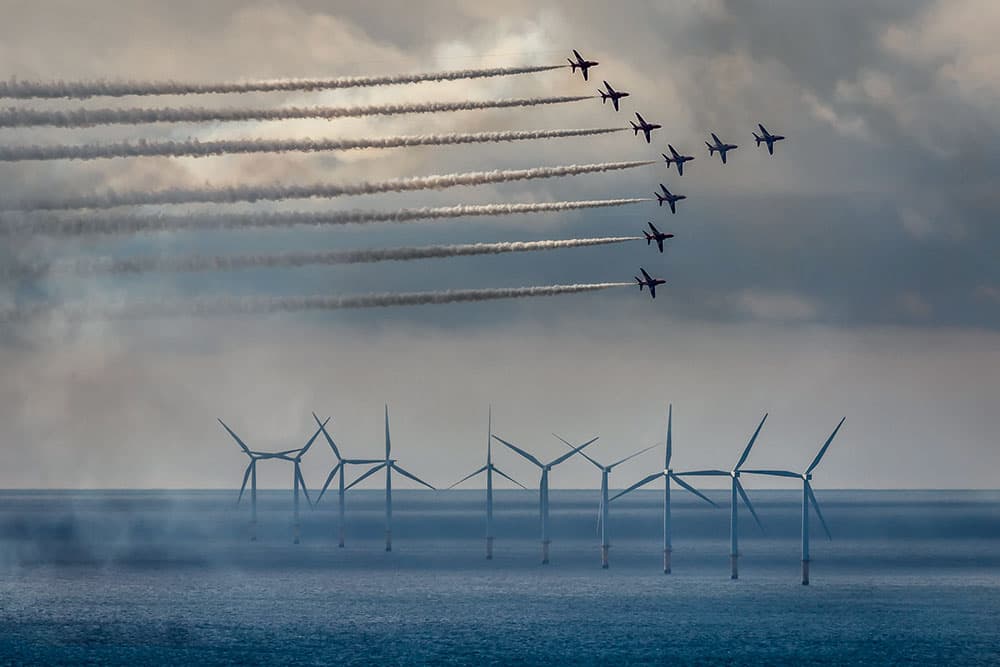
Canon EOS 7D Mark II, 100-400mm at 400mm, 1/2000sec at f/7.1. Credit: Stephen Morris
Environment and Energy winner – Stephen Morris, Clwyd, Wales
This amazing image depicts the Royal Air Force Aerobatic Team, the Red Arrows turning over the Gwynt y Môr wind farm off the North Wales coast during a display at Rhyl airshow in 2016. ‘The team was having to perform their “flat display” due to the low cloud,’ recalls Stephen. ‘Aviation photography has long been a passion of mine, especially military aircraft. This image was taken from some high ground, Graig Fawr. It was quite a challenge as it was very windy at the time, so I used a monopod to give the camera some stability.’
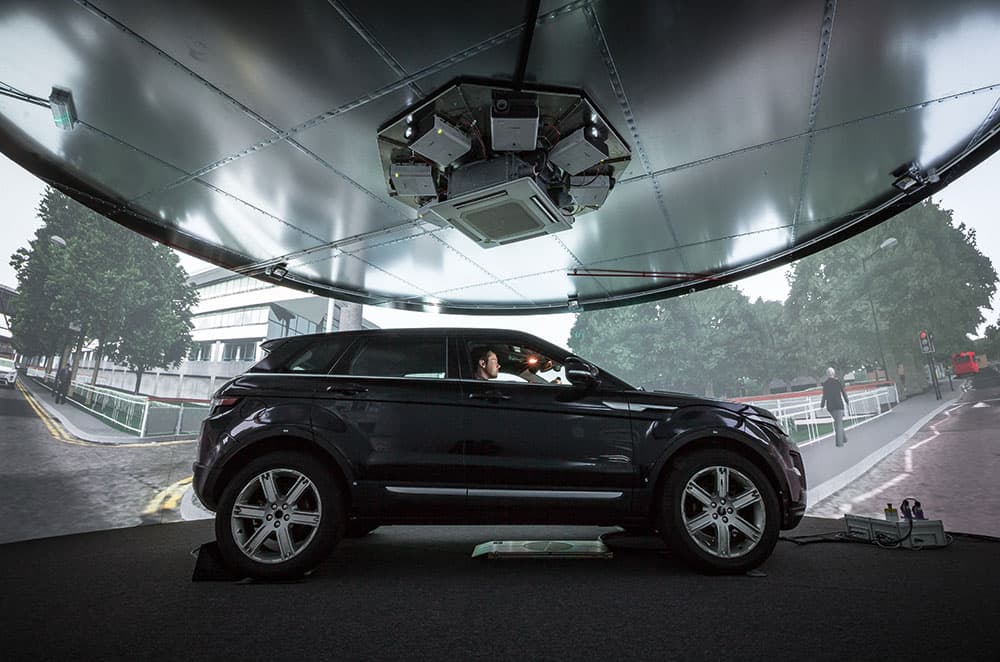
Canon EOS 60D, EF-S 10-18mm at 10mm, 20secs at f/20. Credit: Vadim Melnicuk
Digital winner – Vadim Melnicuk, Warwick, UK
This photo from our engineering photography competition features the 3xD Simulator for Intelligent Vehicles at WMG, University of Warwick. The driving simulator removes much of the risk associated with testing autonomous cars by replicating complex driving scenarios, different environmental conditions and unexpected events in a safe and repeatable environment.
‘I wanted to compose an image that could demonstrate the grand scale of the driving simulator facility I am using for my doctoral research,’ explains Vadim. ‘I asked my colleague to pose for me and stay relatively still during the shot. The camera was mounted onto the tripod, capturing both rear and front views within the simulator room. Also, I decided to feature a large portion of the ceiling where eight projectors are mounted. I thought it might help to understand how visuals are projected onto the 360° wall surrounding the vehicle. I had to switch off one of the projectors and lean towards the floor to avoid being reflected on the vehicle.’
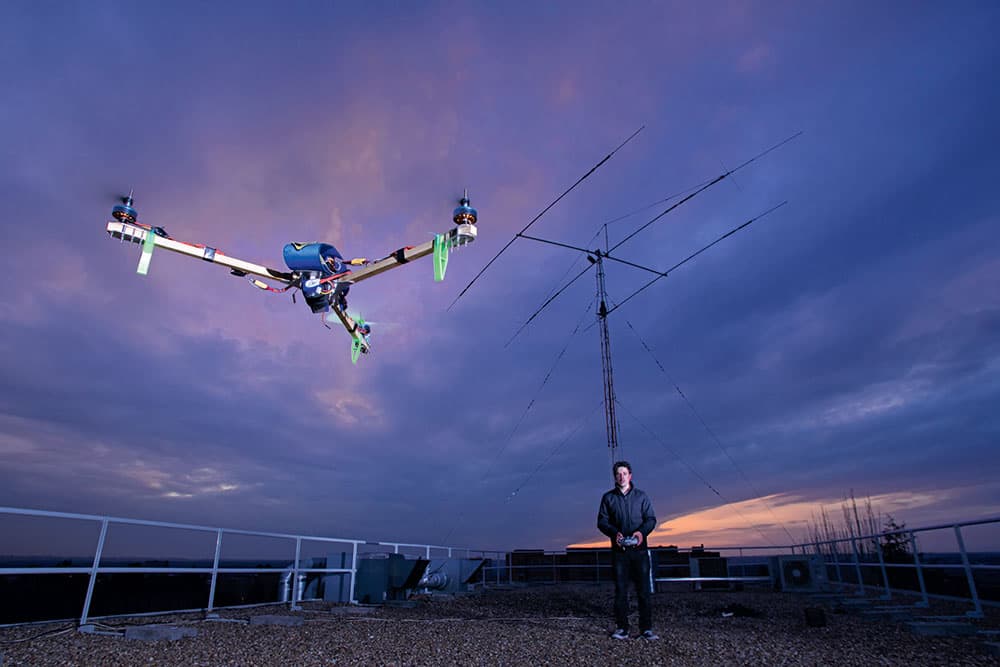
Nikon D800, Nikkor AF 20-35mm f2.8, 1/160sec at f/8, ISO 1000. Credit: Santiago Villamediana Sanchez
Robotics winner – Santiago Villamediana Sanchez, Madrid, Spain
A student at the Technical University of Madrid flies a drone on the terrace of his engineering school. The drone was built by himself and other members of the engineering students association (IEEE). ‘Drones are playing a fundamental role in society,’ says Santiago, explaining why he shot the image. ‘I wanted to illustrate it with some beauty, by shooting on the terrace of the technology centre at sunset. Two speedlights were used.’
Highly commended images in our engineering photography competition
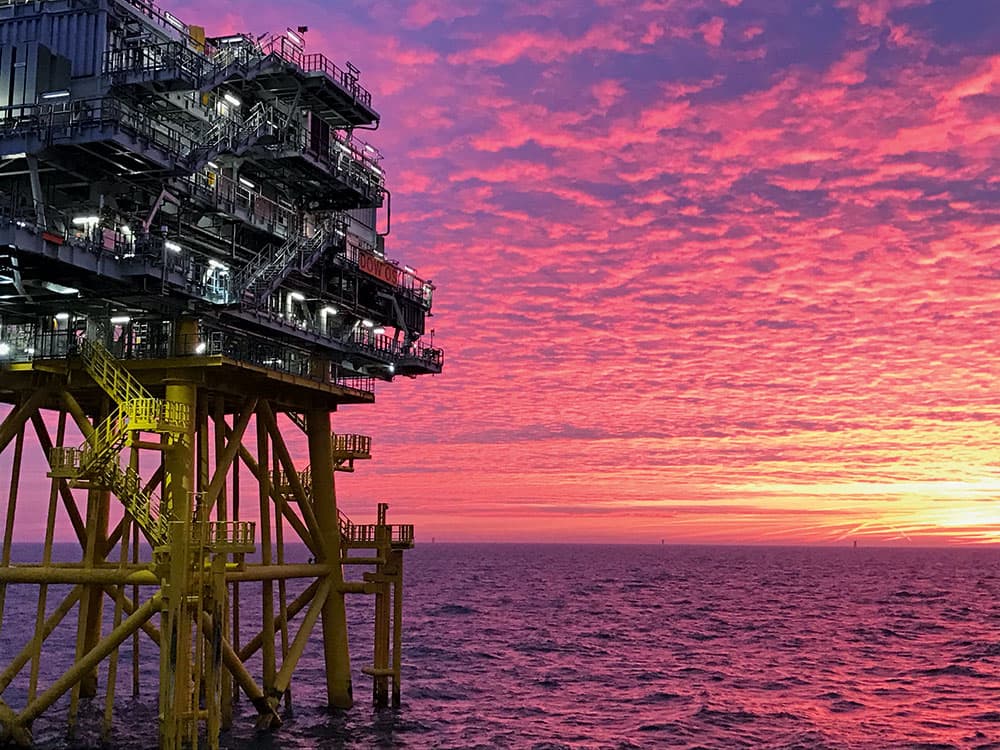
Apple iPhone 7. Credit: Rob Yorke
Rob Yorke, Kent
This is sunrise over the Dudgeon offshore substation, situated about 20 miles out to sea, north of Cromer, Norfolk. It is connected, via undersea cables, to the 67 wind turbine generators of the Dudgeon Offshore Wind Farm. ‘I looked out of the office window on our vessel, the Esvagt Njord, noticed the sunrise and made my way to the outside deck to take some photos,’ recalls Rob, who works for the substation’s operator, Statoil. ‘It was excellent timing as the vessel was positioning close to the substation to connect and allow us to transfer the uptime system for our day’s work. I took 11 shots using my iPhone 7’s LIVE function so each one is a short one-second clip.’
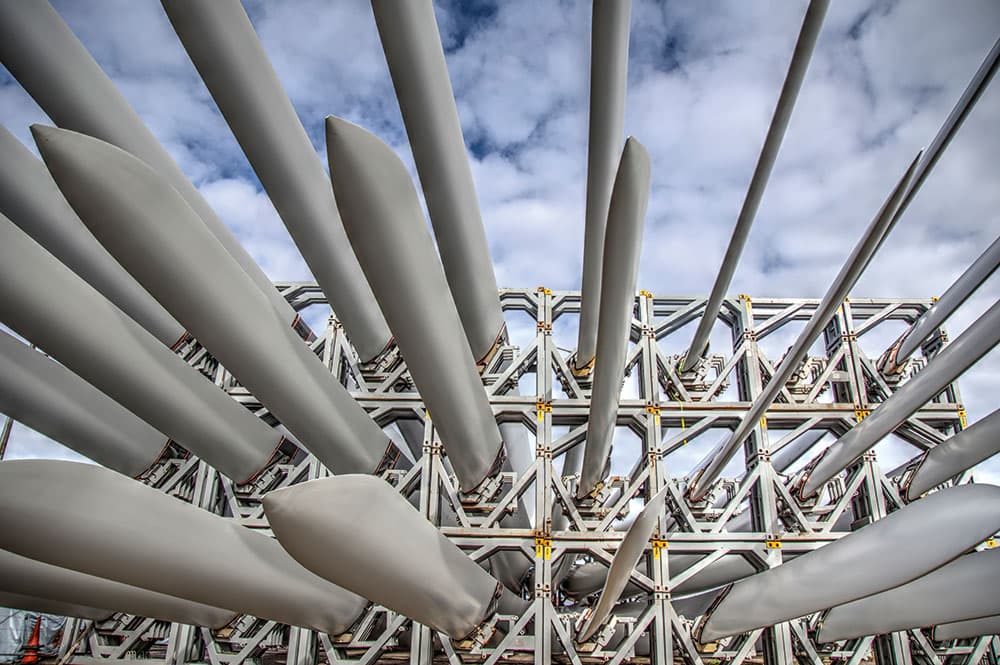
Canon EOS 6D, EF 24-105mm f/4L IS USM at 24mm, 1/1000sec at f/4.5. Credit: Eddie Boyd
Eddie Boyd, Inverness
Eddie photographed a rack of blades for wind turbines, stacked at Inverness harbour ready for use in a development in the north Highlands. ‘I had never seen how they were arranged for transport before and found the scene quite interesting,’ he says. He clambered through to get a close look and shot handheld from a very low position to get the length of the blade protrusion.
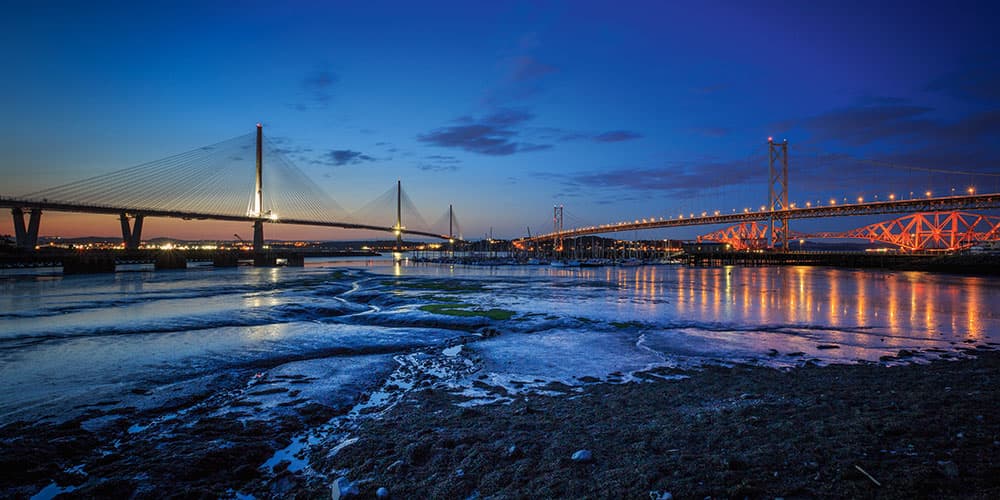
Canon EOS 5D Mark III, EF 16-35mm f/2.8 L II USM at 16mm, 30 seconds at f/10, ISO 200. Credit: Martin Watt
Martin Watt, Fife
Here we see three Queensferry crossings, spanning three centuries of engineering innovation. Martin took this shot ten days before the new Queensferry Crossing opened. ‘Living in Fife, I have endured several years of upheaval on the Forth Road Bridge while the new Queensferry Crossing took shape,’ he says. ‘But I studied engineering at university and I’m a member of the IET so I think it’s been worth it as we now have a new engineering wonder on our doorstep.’ Martin has photographed the bridges several times and made stitched panoramas but this was the first time he had managed to get them all in one shot.
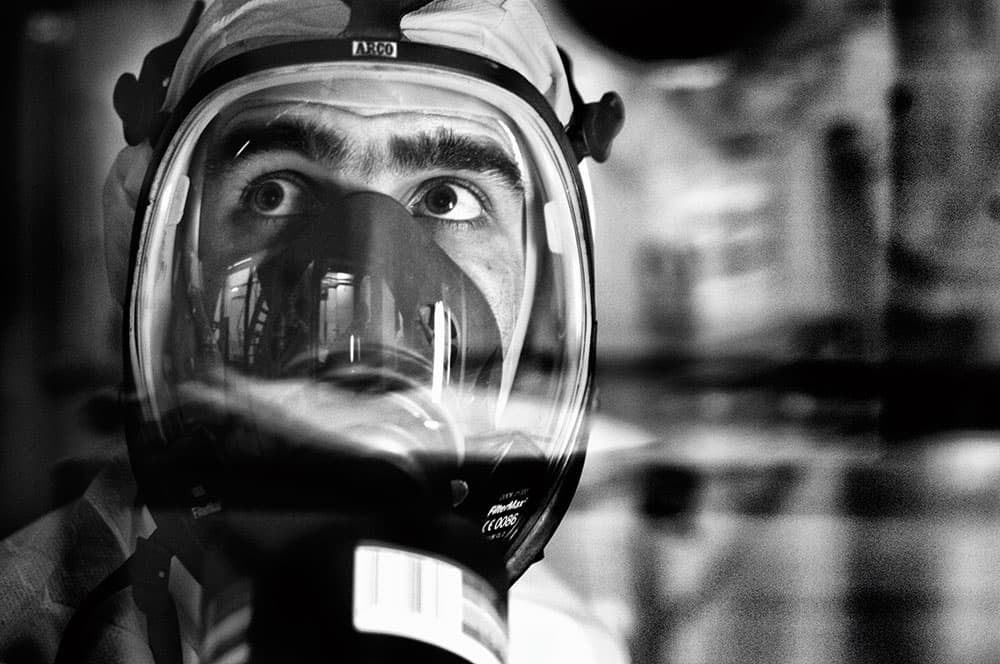
Nikon D2X, Nikkor 85mm f/1.8, 1/20sec at f/2.4. Credit: Martin Park
Martin Pick, Doncaster
In this image in our engineering photography competition, Dr Juan José Vilatela is operating a prototype production unit for the manufacture of continuous carbon nanotube fibre and mat materials at the University of Cambridge, Department of Materials Science.
‘The picture was taken through a Perspex sheet which formed a side of the working enclosure,’ explains Martin. ‘I pressed with the lens close against the Perspex to minimise reflections. It was handheld and, with relatively low light levels, I remember that my concerns were avoiding camera movement and getting his eyes in focus with the low depth of field.’

